Trucking is the leading mode of freight transportation in the world. Truck OEMs and logistics companies are entering a phase of major technology disruption: autonomous trucks, platooning, electrification, increasing driver shortages and stricter emissions standards are impacting conventional practices on an unprecedented scale.
This stream will explore the latest technology being trialled, how business models will have to adjust, and what role digitization will play. Speakers from manufacturers, leading technology companies and commercial transport consultants will share their visions for a very different future.
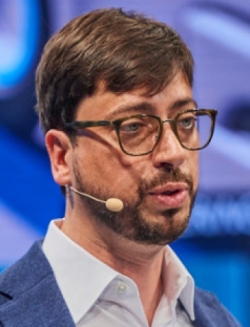
Steffen Kaup
future research transport and logistics
Daimler AG
GERMANY
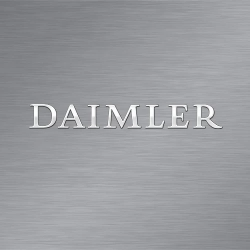
Synopsis: The world of transport is undergoing one of the greatest changes of its time. Increasing demand for transport requires innovative efficiency concepts such as the physical internet. The increasing shortage of drivers is leading to highly automated driving. The role of transport vehicles is changing from moving goods containers to being highly networked mobile logistics hubs. The transport industry is on the way to a holistically networked ecosystem.
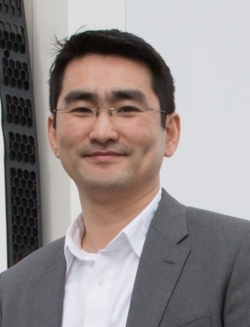
Chung Anh Tran
head of autonomous driving – road transport
Deutsche Bahn AG
GERMANY
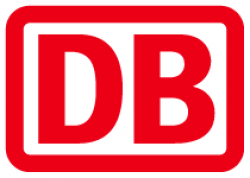
Synopsis: Autonomous driving will change transport processes and generate new business models in logistics. Deutsche Bahn is striving to integrate this innovation into its processes and drive the transformation process forward. Strategically, the company would therefore like to position itself in the best way possible for the future, with partnerships and pilot projects as in the case of EDDI. Our findings show that operating electronically linked trucks on German motorways is safe, technically reliable and easily applicable in the routine of a logistics company. These are the key results of the world's first field test with truck platoons in real logistics operations.

Bart Coppelmans
head of logistic industry solutions
Here Technologies
NETHERLANDS

Synopsis: The presentation will begin with an overview of the logistics industry's most pressing pain points. We will then explore how location intelligence can solve supply chain visibility and last-mile delivery challenges, why data collectives are the future, and how the industry can benefit from data sharing. We will also address how logistics players can improve customer experience by sharing data and value-added services.
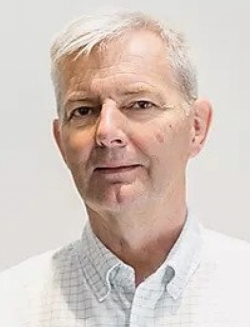
Huw Thomas
development director
Magway
UK

Synopsis: The way we transport goods, namely putting them onto vehicles and the same vehicles onto roads, has remained fundamentally unchanged for over 100 years. Increased urbanization, more e-commerce and higher expectations around delivery and service, combined with global environmental concerns, inadequate infrastructure and reduced access including congestion-charging ultra-low-emission zones, mean innovative new solutions are required. This presentation will explore the challenges and the solutions including Magway's solution to transport goods through small-diameter pipes, enabling multi-modal final-mile deliveries, returns and waste management. It will also discuss improving air quality, congestion, road safety and customer service sustainably and affordably toward a zero-emissions 2050 UK target.

Andrew Scott
head of product management and homologation
Renault Trucks
UK
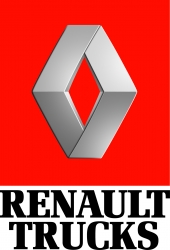
Synopsis: As in Aesop’s fable where the tortoise and the hare compete in a race, many technologies and service solutions are competing to transform the freight transportation sector. Will initiatives such as electrification, platooning or new fuel solutions prove to be tortoises or hares in the race; are there game-changers that will deliver such a ‘leap’ in progress that we consider them kangaroos? As the freight sector deals with low margins, unprecedented external pressures and high investment costs what are the factors that will determine how the race plays out, will the race rules even stay the same, and how might different stakeholders work together to increase their chances of success?
Rodrigo Caetano
business development manager
Scania CV AB
SWEDEN
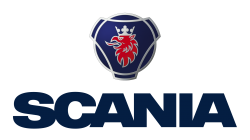
Synopsis: Autonomous vehicles represent an exceptional opportunity to change urban mobility as long as they are integrated into a shared and seamless public transport network. This proposal takes a closer look at concepts that cater to the trunk lines and the first and last mile to enable an autonomous, seamless, shared transport system. The aim is to offer a scalable multimodal solution built on a common platform that is practical, offers seamless transition between different modes, and is inclusive.

Thomas Novak
C-ITS program and safety manager
Swarco Futurit
AUSTRIA

Synopsis: Enhancing the efficiency and sustainability of freight transport is one key issue for logistics companies and has been a rather challenging task due to steadily increasing volumes of goods. One approach for setting up a smart and sustainable logistics system is using some form of truck platooning combined with C-ITS solutions. The Austrian flagship project Connecting Austria (2018-2020) investigates four specific C-ITS use cases for semi-automated and energy-efficient truck platoons. The key objective is the evidence-based evaluation of energy-efficient, cooperative and connected truck platooning.
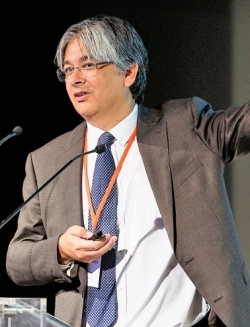
Ming Chen
senior consultant
TNO
NETHERLANDS

Synopsis: Vehicle automation is targeting a reduction in congestion and improved road safety. Do we pay sufficient attention to potential unintended negative effects? The costs for long-distance road freight transportation could be reduced by 50% when automation is possible on highways (SAE Level 4), some time around 2022. On-demand mobility is particularly interesting where parking fees are highest. What will this all imply for our societal targets? How can we anticipate these rebounds and which new policy tools can we use instead to get a grip on mobility?

Steven Wilkins
senior research scientist
TNO
NETHERLANDS

Synopsis: The transition away from fossil fuels means multiple technologies need to be assessed, while still preserving the functionalities that end users have become accustomed to. One vehicle segment in particular is that of heavy-duty freight. Often these vehicles are required to operate in emission-sensitive (geofenced) areas while still preserving the need to operate over longer distances. This work presents innovations on the assessment and optimization of plug-in hybrids for these applications.

James Tillyer
consultant
Transformotion
UK

Synopsis: Eleven million truck and bus drivers in Europe face an uncertain future because of vehicle autonomy. This presentation will introduce Steer to Career, an EU-funded project that seeks to encourage the development of professional drivers to reduce the future impact of mass redundancy and to get companies thinking about how they can use their drivers' experience and skills to go from being 'just a driver' to becoming a road pilot. The speaker will offer scenarios and predictions based on research, and discuss the technical and social skills needed for the future.
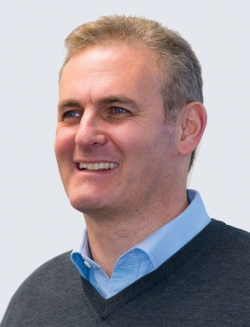
Lyall Cresswell
CEO and founder
Transport Exchange Group
UK

Synopsis: It’s the question that every commercial fleet manager is asking. What’s the future of freight transportation? This presentation will reveal why ‘edgeless fleets’ underpinned by AI-driven freight exchange platforms will help fleets flourish in the logistics landscapes of tomorrow. It will demonstrate how freight exchange platforms – and the fleets signed up to them – will square the circle by creating a trust network across the entire supply chain, allowing individual fleets to see the bigger picture – and thrive.
Georgia Kaiser
senior manager business innovation
Traton SE
GERMANY

Synopsis: Challenges in the commercial vehicle industry will lead to new thoughts on how to transport goods in the future. Drivers including alternative drivetrains and autonomous driving will require OEMs to significantly transform transportation and to further develop transport solutions for the customers of the future. This presentation will provide an OEM's view on how to tackle the challenges of the industry over the next 10 years.

Thomas Doering
senior manager business development
Traton SE
GERMANY

Synopsis: Challenges in the commercial vehicle industry will lead to new thoughts on how to transport goods in the future. Drivers including alternative drivetrains and autonomous driving will require OEMs to significantly transform transportation and to further develop transport solutions for the customers of the future. This presentation will provide an OEM's view on how to tackle the challenges of the industry over the next 10 years.